

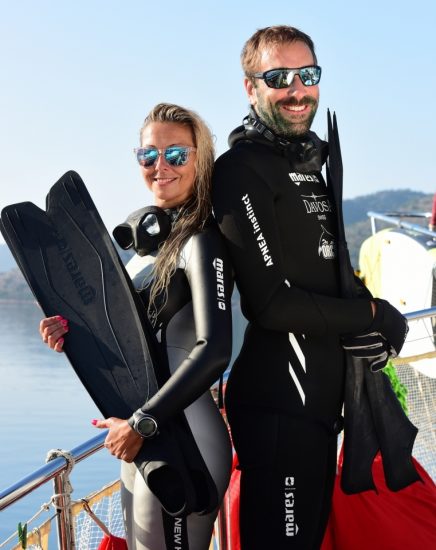
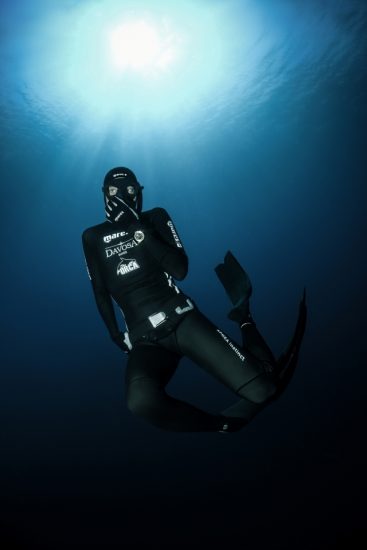
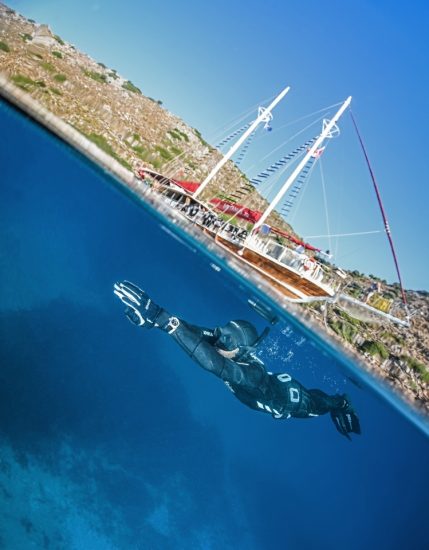
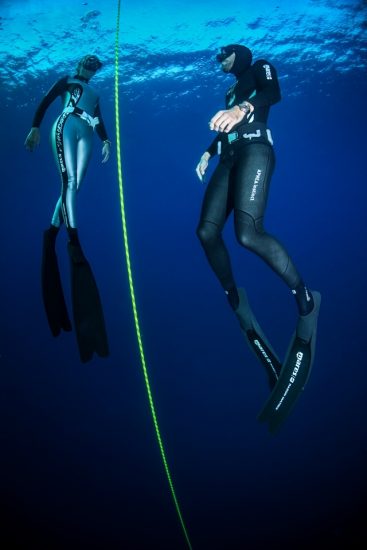
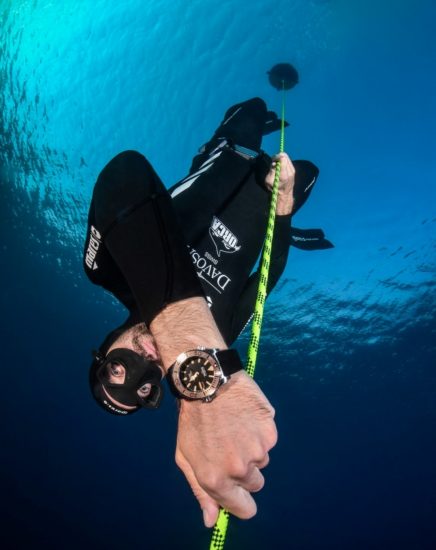
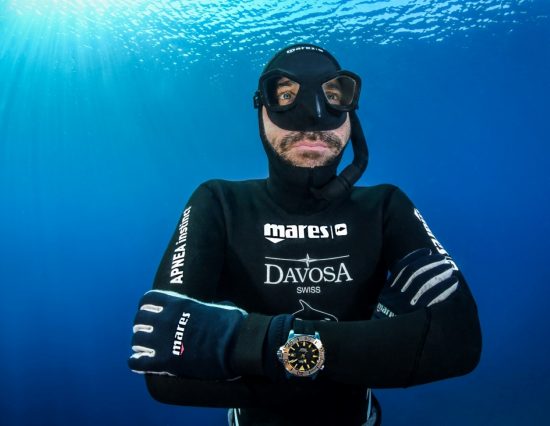
Nik Linder: My name is Nikolay ‘Nik’ Linder. I live in the very south of Germany, close to France and Switzerland, with my family. My profession is Freediving. I am an SSI Instructor Trainer and enjoy teaching students from beginner to Instructor level. I also invented a relaxation technique called ‘Relaqua’ which combines the mammalian dive reflex, meditation techniques and Pranayama breathing exercises for deeper relaxation.
As well as this, I am also a writer, and have written two books about freediving which were originally released in German and are now also available in French, English and Czech. I write articles for German dive magazines, yoga, fitness and surf magazines. I also guide tours all around the world. Since my record-breaking time (I broke some records in the Dynamic Under Ice discipline) I am an ambassador for Mares and Davosa Watches.
Ivana OK: There are many beautiful, interesting jobs and working as a freediving instructor is certainly one of them. Can you describe your office?
Nik: My playground is all around the world. Yesterday French Polynesia, today Turkey, next week Italy and the Bahamas in two weeks time. Between my travels, I mostly work in German speaking countries like Germany and Switzerland. My office is the sea, but also the swimming pools in big and small cities where I hold presentations for doctors about breathing and apnea.
Ivana: Nowadays, life is very quick; people work too much, a lot of time is spent in traffic jams or over a laptop and with a phone in hand. There is very little time for sporting activities. Is freediving one of the best ways to recharge your batteries?
Nik: Oh yes! We, as humans, enjoy the water. As soon as we enter the water and hold our breath, our heart rate slows down. The fact our main senses, seeing and hearing, are switched off, helps us to look within. We can feel our reduced heart rate as we are so relaxed. Besides this, it is pure fun.
Ivana: I have worked with many people throughout my career. The first thing I liked about you is your relaxed communication, kindness and humor. We have worked on two projects and I was astonished by the ease with which you handle every problem with a smile. Not a single trace of stress… is it because of the freediving?
Nik: I worked in an insurance company when I was younger and I was not so happy. I thank God every day that I have had this great opportunity to do freediving for a living. That's why I am so happy all the time!
Ivana: Many people like the water and find it relaxing. Those who are curious about what is hidden under the waters of our planet put on a mask, fins and snorkel and go exploring. What are the differences between snorkeling and freediving?
Nik: I always say, there is no big difference between freediving and snorkeling, both travel on a single breath, but now there are a lot of full-face mask snorkelers. Today I would say, if you are at the surface all the time, you are snorkeling. When you use the skills from freediving (breathing techniques, Duck diving, buoyancy and so on) then you are a freediver. In Freediving, it is not always about diving deep or for a long time. It is also about staying at five meters and enjoying the reef.
Ivana: During your freediving excursions, people learn not only about freediving, but also pranayama and yoga. Is all of that connected and how does it improve overall performance?
Nik: When we change from normal breathing to conscious breathing we can use our lungs more effectively. If you imagine travelling only on one breath, everybody has the aim of getting the most out of that single breath. A flexible lung helps to prevent the lung from injuries - cause we freedivers can feel the pressure.
These breathing techniques are in fact part of yoga. But the 'normal' Asanas help the freediver to make the body flexible, to maintain a good body position, to prepare the hardware so the lungs can expand more. It also helps to gain an awareness of our own bodies. As advanced freedivers, we should be able to relax some muscles at the same time as having to tense others.
Ivana: Which destinations and projects await you next?
Nik: Next year I will be in Bali-Komodo, Sudan, Egypt, Croatia and more…it will be cool :-)
I also really enjoy being on the Okyanus JD. I travel a lot, but I have never experienced a better area for deep diving like Turkey. Deep, warm water with no current and no waves at all. Unbelievable! This year I have been touring with Ahmet and his crew six times, and I have always enjoyed the best deep diving conditions and their hospitality.
Interview by Ivana OK
Photos by Janez Kranjc
Support from J-Dive Turkey, Davosa and SSI Freediving.
See Mares' innovative Freediving gear here!
 Ivana and Janez
Ivana and Janez 15th November 2019
15th November 2019